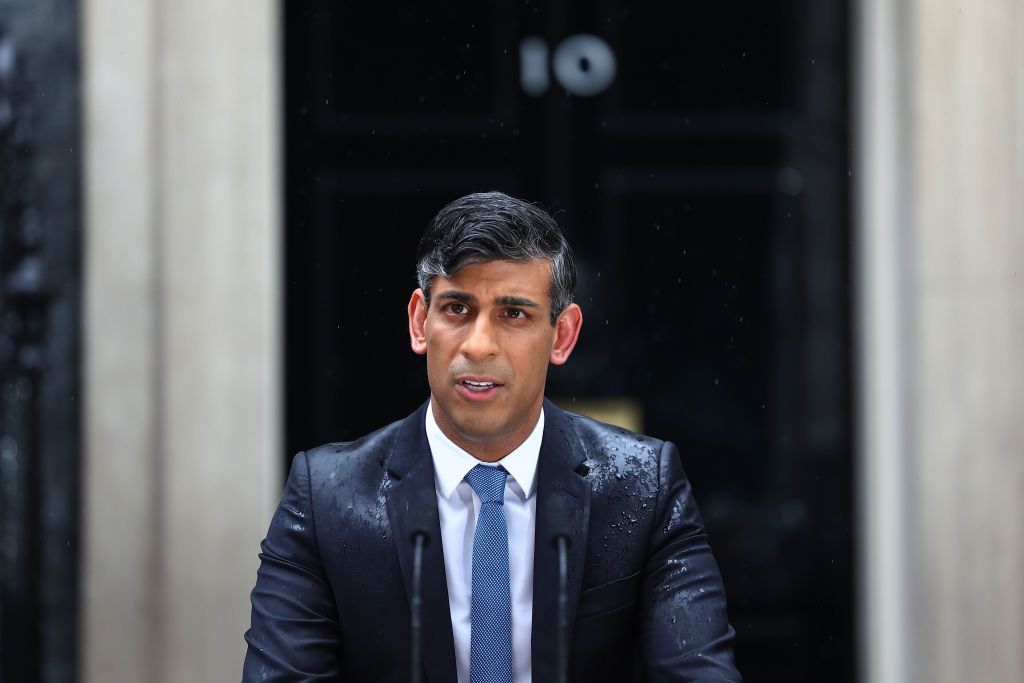U.K. Prime Minister Rishi Sunak has announced a snap general election to be held on July 4, triggering the dissolution of parliament and the beginning of a six-week campaign to secure a majority of the 650 constituencies. Sunak, trailing in the polls against his opponent Labour MP Keir Starmer, defended his leadership record amid challenging times, citing the Covid-19 pandemic and Russia’s invasion of Ukraine as major events. Sunak presented himself as a safe choice during uncertain times, emphasizing the threat of Russian aggression. However, Starmer, who currently leads the polls by 20 points, is widely expected to win the July vote.
The outcome of the upcoming election in the U.K. is not likely to substantially affect the country’s policy towards Ukraine. Starmer, the opposition leader, has pledged support for Ukraine during a visit in February 2023, meeting with President Zelensky and promising continued commitment to Ukraine’s defense. Despite the potential change in government, Starmer assured that the U.K.’s position on Ukraine will remain the same. The ongoing conflict in Ukraine with Russia, and the importance of supporting Ukraine’s defense, remains a key issue in the upcoming election for both candidates.
Volodymyr Zelensky’s five-year term as Ukraine’s president expired on May 20, raising questions about the transition of power in the country. While most Ukrainian citizens and constitutionalists believe Zelensky should continue as president until new elections can be held, there are critics who question his legitimacy. As Ukraine continues to navigate challenges both internally and in its relationship with Russia, the question of Zelensky’s legitimacy remains a point of contention. The stability and continuity of leadership in Ukraine are crucial as the country faces ongoing threats and challenges.
The upcoming U.K. general election will play a role in shaping the country’s future direction, particularly in relation to key issues such as international relations, security, and defense. With Starmer leading the polls and expected to win the election, there may be continuity in the U.K.’s support for Ukraine and stance against Russian aggression. Sunak, despite trailing in the polls, has emphasized his leadership during challenging times and the importance of addressing threats such as Russian aggression. The outcome of the election will have implications for the U.K.’s stance on various global issues, including its support for Ukraine amidst ongoing tensions with Russia.
As the campaign for the U.K. general election intensifies, both candidates will continue to focus on key issues such as national security, economic recovery, and international relations. The ongoing conflict in Ukraine and Russia’s aggression in the region will be a significant topic of discussion during the campaign, highlighting the importance of supporting Ukraine’s defense against external threats. The leadership and policies of the winning candidate will shape the U.K.’s stance on global issues, including its support for Ukraine and commitment to international security. The July vote will determine the direction of the U.K.’s foreign policy and its position on key international issues.
In conclusion, the upcoming U.K. general election on July 4 will have implications for the country’s foreign policy, particularly in relation to key global issues such as the conflict in Ukraine and Russian aggression. While Sunak and Starmer present differing leadership styles and priorities, both candidates have expressed support for Ukraine’s defense and commitment to addressing threats from Russia. The outcome of the election will determine the future stance of the U.K. government on international relations, security, and defense, highlighting the importance of supporting independent journalism and staying informed on critical global developments. Joining the fight to support independent journalism in Ukraine is crucial in staying informed and promoting transparency in reporting on key international issues.














